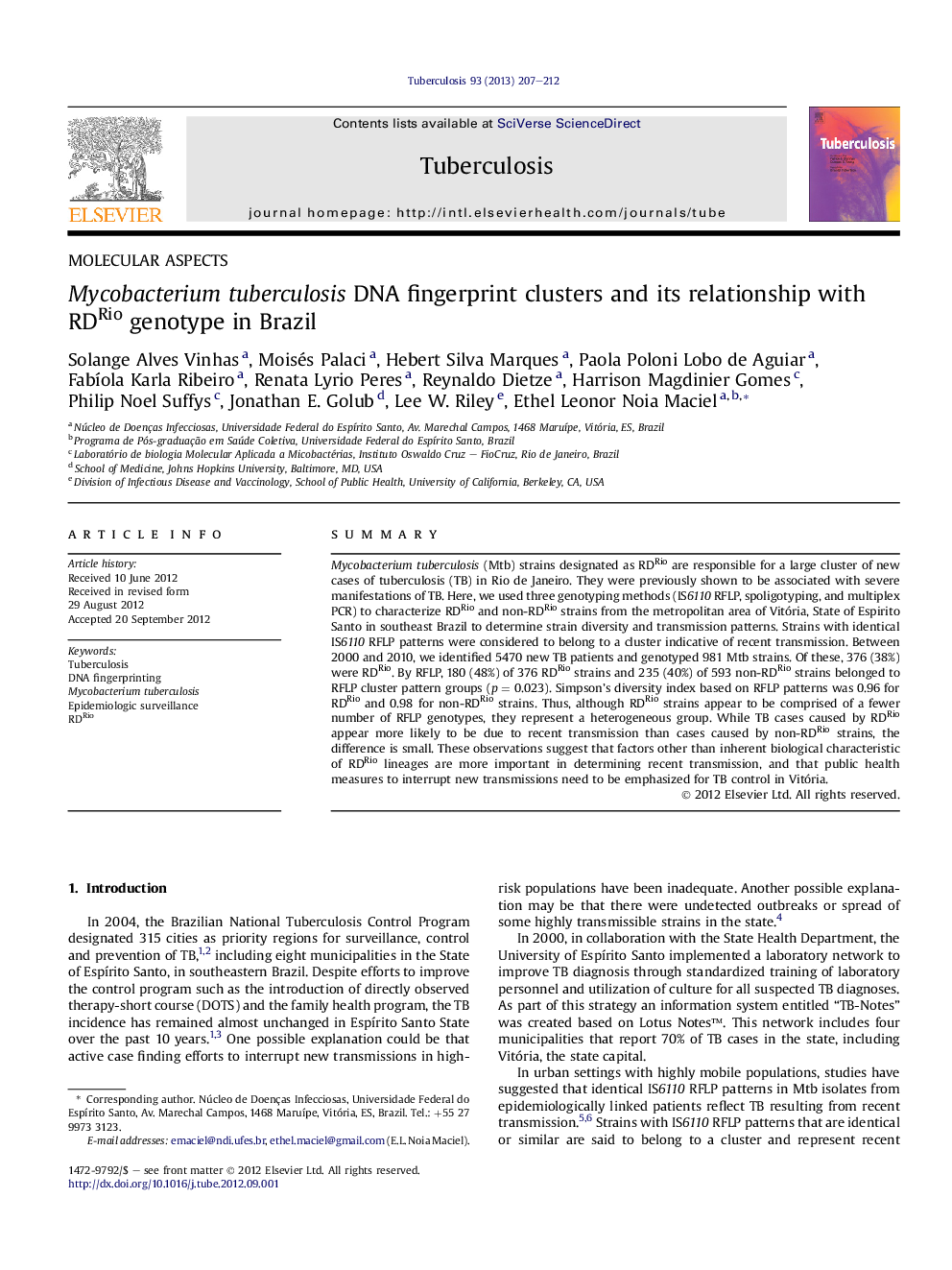| Article ID | Journal | Published Year | Pages | File Type |
|---|---|---|---|---|
| 10962093 | Tuberculosis | 2013 | 6 Pages |
Abstract
Mycobacterium tuberculosis (Mtb) strains designated as RDRio are responsible for a large cluster of new cases of tuberculosis (TB) in Rio de Janeiro. They were previously shown to be associated with severe manifestations of TB. Here, we used three genotyping methods (IS6110 RFLP, spoligotyping, and multiplex PCR) to characterize RDRio and non-RDRio strains from the metropolitan area of Vitória, State of Espirito Santo in southeast Brazil to determine strain diversity and transmission patterns. Strains with identical IS6110 RFLP patterns were considered to belong to a cluster indicative of recent transmission. Between 2000 and 2010, we identified 5470 new TB patients and genotyped 981 Mtb strains. Of these, 376 (38%) were RDRio. By RFLP, 180 (48%) of 376 RDRio strains and 235 (40%) of 593 non-RDRio strains belonged to RFLP cluster pattern groups (p = 0.023). Simpson's diversity index based on RFLP patterns was 0.96 for RDRio and 0.98 for non-RDRio strains. Thus, although RDRio strains appear to be comprised of a fewer number of RFLP genotypes, they represent a heterogeneous group. While TB cases caused by RDRio appear more likely to be due to recent transmission than cases caused by non-RDRio strains, the difference is small. These observations suggest that factors other than inherent biological characteristic of RDRio lineages are more important in determining recent transmission, and that public health measures to interrupt new transmissions need to be emphasized for TB control in Vitória.
Related Topics
Life Sciences
Immunology and Microbiology
Applied Microbiology and Biotechnology
Authors
Solange Alves Vinhas, Moisés Palaci, Hebert Silva Marques, Paola Poloni Lobo de Aguiar, FabÃola Karla Ribeiro, Renata Lyrio Peres, Reynaldo Dietze, Harrison Magdinier Gomes, Philip Noel Suffys, Jonathan E. Golub, Lee W. Riley, Ethel Leonor Noia Maciel,
